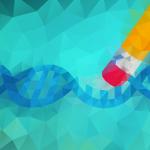As part of the European Union, the UK was a stronghold of anti-GMO opposition. Post-Brexit, however, Britain is changing its outlook for the better.
gene editing
The standard story most people know about “GMOs” centers around a handful of commodity crops engineered to withstand exposure to weedkillers or produce natural insecticides that ward off pests.
Life goes on as gene-edited foods begin to hit the market.
In the coming years, a genetically engineered tomato may be your first line of defense against high blood pressure.
The battle over COVID-19 vaccine mandates has added another layer of controversy to our bitter, partisan dialogue surrounding the pandemic.
The Trump Administration issued two executive orders relating to biomedical science in recent days. The first involved the regulation of biotechnology products, and the second involved transparency in healthcare costs.
China has a nasty habit of making people disappear. It doesn't really matter how important the person is, either.
You may have recently seen any of the following headlines saturating the airwaves over a scientist in China defying global ethical and procedural norms by going rogue and utilizing CRISPR technology in real world human experimentation:
Europe is not a particularly friendly place to be a biologist. Sure, Europeans believe in evolution, but that's about it. Vaccines and GMOs? Not so much.












